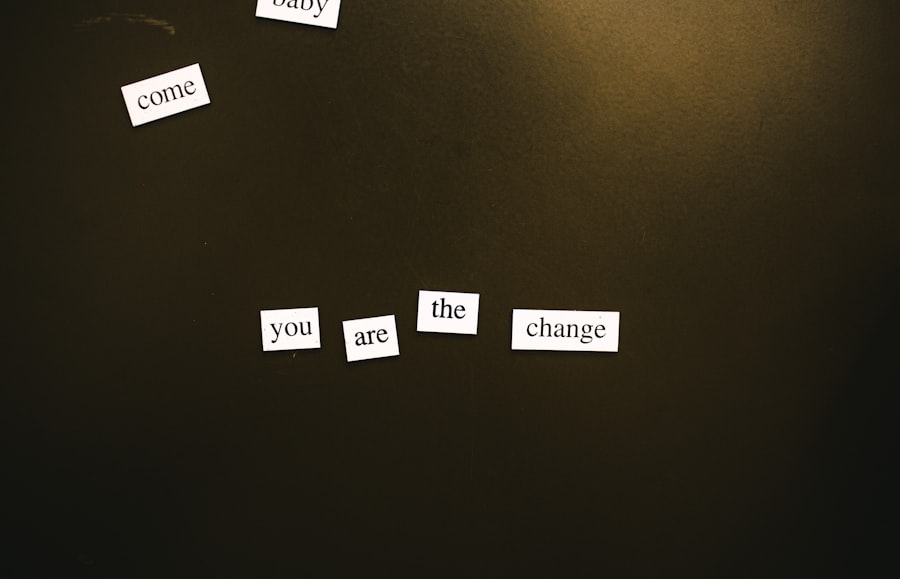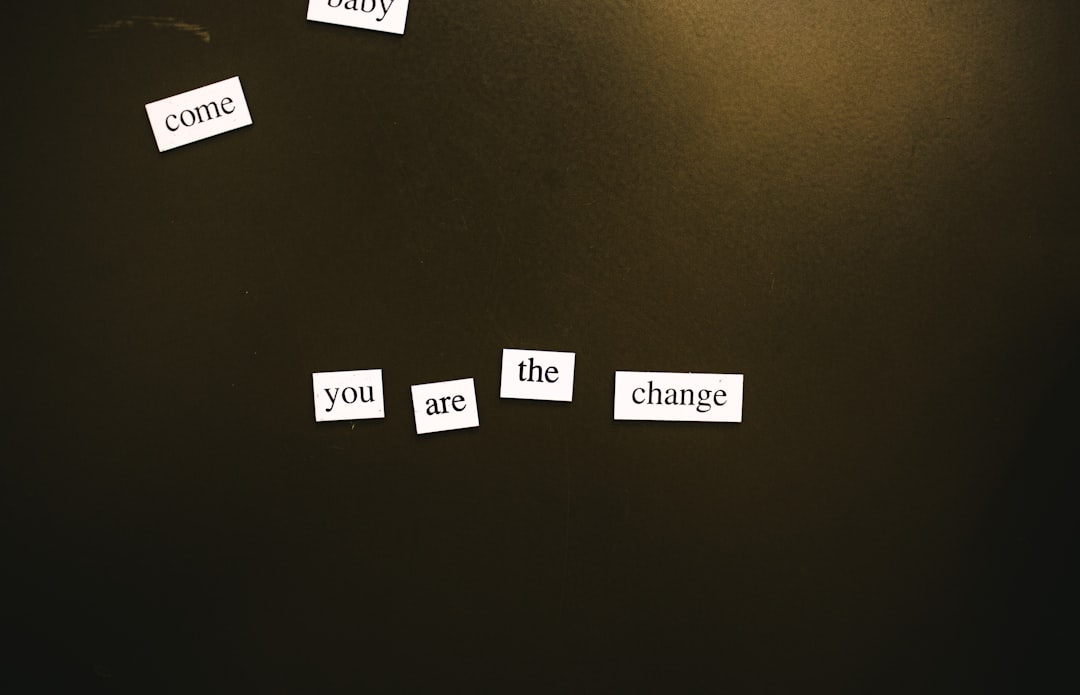Julia Kristeva, a prominent figure in contemporary philosophy, psychoanalysis, and feminist theory, has made significant contributions to our understanding of language, identity, and the complexities of human relationships. Born in Bulgaria in 1941, she later moved to France, where her intellectual pursuits flourished. Kristeva’s work is characterized by a unique blend of semiotics, psychoanalysis, and literary theory, which allows her to dissect the intricacies of human experience.
Her concepts of intertextuality and the abject have reshaped the landscape of literary criticism and feminist thought, making her a pivotal figure in post-structuralist discourse. Kristeva’s intellectual journey has been marked by her exploration of the interplay between language and the psyche. She posits that language is not merely a tool for communication but a complex system that shapes our understanding of reality.
Her theories challenge traditional notions of identity, suggesting that it is fluid and constructed through language and social interaction. As we delve into the implications of the Metaverse—a digital universe that blurs the lines between reality and virtuality—Kristeva’s insights provide a compelling framework for understanding this new frontier.
Key Takeaways
- Julia Kristeva is a prominent Bulgarian-French philosopher, literary critic, psychoanalyst, and feminist theorist known for her work on language, literature, and psychoanalysis.
- Kristeva’s lens provides a unique perspective for understanding the Metaverse, a virtual reality space where people can interact with a computer-generated environment and other users.
- According to Kristeva, the Metaverse offers opportunities for creativity, self-expression, and the exploration of new identities, fostering a sense of freedom and playfulness.
- Kristeva also highlights the potential for alienation, depersonalization, and the loss of authentic human connection in the Metaverse, raising concerns about its impact on mental health and social relationships.
- Identity and subjectivity play a crucial role in the Metaverse, as users navigate between their physical and virtual selves, blurring the boundaries between reality and simulation.
Understanding the Metaverse through Kristeva’s Lens
Intertextuality in the Metaverse
Kristeva’s theories on intertextuality suggest that every digital interaction exists in relation to others, creating a web of meanings that are constantly evolving. In this context, the Metaverse can be seen as a vast tapestry of interconnected narratives, where users contribute to and reshape the fabric of digital existence.
The Abject in the Digital Realm
The digital realm often challenges our understanding of boundaries, identity, and reality itself. Users may encounter avatars that defy traditional representations of gender, race, and even species, prompting a reevaluation of what it means to be human in a digital age. This confrontation with the abject can lead to both liberation and anxiety as individuals navigate their identities within this fluid landscape.
The Metaverse presents an opportunity for users to explore and express their identities in new and innovative ways. However, it also raises important questions about the nature of identity and reality in the digital age. As users navigate this complex landscape, they must confront and reconcile their understanding of self and society.
Positive Aspects of the Metaverse according to Kristeva

From Kristeva’s perspective, the Metaverse holds significant potential for fostering creativity and self-expression. The digital environment allows individuals to explore facets of their identities that may be constrained in the physical world. In this virtual space, users can experiment with different personas, engage in artistic endeavors, and collaborate with others across geographical boundaries.
This democratization of expression aligns with Kristeva’s belief in the transformative power of language and art as vehicles for personal and collective liberation. Furthermore, the Metaverse can serve as a platform for community building and social connection. In an increasingly fragmented world, virtual spaces offer opportunities for individuals to find like-minded communities and engage in meaningful dialogues.
Kristeva emphasizes the importance of dialogue in constructing identity and understanding oneself in relation to others. The Metaverse facilitates these interactions by providing diverse forums for discussion, collaboration, and shared experiences. This interconnectedness can lead to a richer understanding of our shared humanity and foster empathy across cultural divides.
Negative Aspects of the Metaverse according to Kristeva
Despite its potential benefits, Kristeva would likely caution against the darker implications of the Metaverse. One significant concern is the potential for alienation and disconnection from reality. As individuals immerse themselves in virtual environments, there is a risk of losing touch with their physical surroundings and relationships.
This phenomenon echoes Kristeva’s exploration of the abject; as users navigate their digital identities, they may encounter aspects of themselves that are unsettling or disorienting. The allure of the Metaverse can lead to escapism, where individuals retreat into virtual worlds at the expense of genuine human connections. Additionally, the Metaverse raises questions about surveillance and control.
In a space where personal data is constantly collected and analyzed, users may find themselves subject to manipulation by powerful entities. Kristeva’s insights into power dynamics highlight how language and discourse shape our understanding of authority and agency. In the Metaverse, users must grapple with issues of privacy and autonomy as they navigate a landscape that is often governed by corporate interests.
This tension between freedom and control poses significant challenges for individuals seeking authentic experiences in a mediated environment.
The Role of Identity and Subjectivity in the Metaverse
Identity in the Metaverse is a multifaceted construct that reflects Kristeva’s theories on subjectivity. In this digital realm, individuals can curate their identities through avatars, profiles, and interactions with others. This process aligns with Kristeva’s notion that identity is not fixed but rather fluid and constructed through language and social engagement.
This flexibility can empower individuals to embrace aspects of their identities that may be marginalized or suppressed in the physical world. However, this fluidity also raises questions about authenticity and representation.
As users navigate multiple identities within the Metaverse, they may grapple with feelings of fragmentation or disconnection from their “real” selves. Kristeva’s exploration of the abject suggests that confronting these dissonances can be both liberating and unsettling. The challenge lies in finding a balance between embracing diverse identities while maintaining a sense of coherence in one’s self-concept.
The Metaverse thus becomes a space for negotiation—a site where individuals can explore their subjectivity while grappling with the complexities of authenticity.
The Impact of the Metaverse on Communication and Relationships

The Metaverse fundamentally alters how we communicate and form relationships. Traditional modes of interaction are transformed as users engage through avatars and digital interfaces rather than face-to-face encounters. This shift aligns with Kristeva’s emphasis on language as a dynamic force that shapes our understanding of self and others.
In the Metaverse, communication becomes multi-layered; users must navigate not only verbal exchanges but also visual representations and non-verbal cues embedded within their avatars. While this new mode of communication offers opportunities for creativity and expression, it also presents challenges for genuine connection. The anonymity afforded by avatars can lead to disinhibition but may also foster misunderstandings or superficial interactions.
Kristeva’s insights into dialogue highlight the importance of meaningful exchanges in constructing relationships; thus, users must navigate the complexities of communication in a way that fosters authenticity amidst the potential for misrepresentation.
The Metaverse and the Construction of Meaning and Symbolism
In Kristeva’s framework, meaning is not static but rather constructed through interactions within cultural contexts. The Metaverse serves as a rich site for exploring how meaning is generated in digital spaces. Users engage with symbols—ranging from avatars to virtual environments—that carry cultural significance and personal resonance.
This interplay between individual experience and collective symbolism reflects Kristeva’s belief in intertextuality; every interaction contributes to an evolving narrative shaped by cultural references and shared experiences. Moreover, the construction of meaning within the Metaverse raises questions about authorship and ownership. As users co-create content and narratives within these virtual spaces, traditional notions of authorship become blurred.
This shift aligns with Kristeva’s exploration of how language evolves through dialogue; meaning emerges not solely from individual expression but from collaborative engagement within a community. The Metaverse thus becomes a dynamic arena for negotiating meaning—a space where users collectively shape their realities through shared symbols and narratives.
Kristeva’s Perspective on the Future of the Metaverse
As we contemplate the future of the Metaverse through Julia Kristeva’s lens, we are reminded of its potential as both a site for liberation and a space fraught with challenges. The digital realm offers opportunities for creativity, self-exploration, and community building while simultaneously raising concerns about alienation, authenticity, and control. Kristeva’s insights into identity, subjectivity, and language provide valuable frameworks for navigating these complexities.
Ultimately, the future of the Metaverse will depend on how individuals engage with its possibilities while remaining mindful of its pitfalls. By embracing dialogue, fostering genuine connections, and critically examining our interactions within this digital landscape, we can harness the transformative power of the Metaverse while remaining grounded in our shared humanity. In doing so, we honor Kristeva’s legacy as a thinker who challenges us to confront the intricacies of identity and meaning in an ever-evolving world.
If we were to ask the philosopher Julia Kristeva about the metaverse in an interview, she would likely provide a deep and insightful analysis of its implications. In a related article titled “Future Trends and Innovations in the Metaverse Industry: Projections in the Metaverse,” experts discuss the potential positive and negative aspects of this emerging technology. Kristeva might touch on the ways in which the metaverse could revolutionize communication and creativity, but also raise concerns about privacy and the blurring of reality. To read more about this topic, check out the article here.
FAQs
Who is Julia Kristeva?
Julia Kristeva is a Bulgarian-French philosopher, literary critic, psychoanalyst, and feminist theorist. She is known for her work in the fields of linguistics, literary theory, and psychoanalysis.
What is the metaverse?
The metaverse is a collective virtual shared space, created by the convergence of virtually enhanced physical reality and physically persistent virtual reality. It is a concept that has gained popularity in recent years with the advancement of virtual reality and augmented reality technologies.
What positive aspects of the metaverse might Julia Kristeva discuss?
Julia Kristeva might discuss the potential for the metaverse to provide new forms of artistic expression and creativity, as well as opportunities for diverse communities to connect and collaborate in virtual spaces. She might also explore how the metaverse could offer new ways for individuals to explore and express their identities.
What negative aspects of the metaverse might Julia Kristeva discuss?
Julia Kristeva might express concerns about the potential for the metaverse to further isolate individuals from physical reality and exacerbate feelings of alienation and disconnection. She might also critique the commercialization and commodification of virtual spaces, as well as the potential for the metaverse to perpetuate inequalities and power imbalances.











Leave a Reply